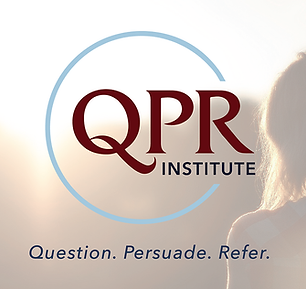
Mental Health Training for Helping Professionals
We design, coordinate, and facilitate specialized mental health training tailored to meet the unique needs of your organization.
Mental Health First Aid Training
Identify. Understand. Respond.
Mental Health First Aid (MHFA) is a transformative, skills-based training course designed to educate participants about mental health and substance-use issues, empowering them with the knowledge and tools to respond effectively in times of crisis.
At Hyman Consulting, we coordinate and facilitate Adult, Youth, and Teen MHFA Training tailored specifically for your organization’s needs. Our training sessions are crafted to fit diverse environments, and we are pleased to offer community-focused modules designed to address the unique challenges faced by specific groups, including:
-
Law Enforcement, Corrections, & Public Safety: Enhance your team’s ability to recognize and de-escalate mental health crises, building stronger, safer interactions in the community.
-
Higher Education: Equip faculty, staff, and students with the skills to support mental health on campus, fostering a supportive and inclusive educational environment.
-
Older Adults: Gain insights into the mental health needs of older adults, addressing challenges like isolation, cognitive decline, and substance use in a compassionate, informed way.
Our MHFA programs empower your team to:
-
Identify mental health challenges early.
-
Understand the complexities of mental health and substance-use disorders.
-
Respond with empathy and practical skills to provide immediate support.
Training Duration: We understand that every organization has unique scheduling needs. Training sessions are customizable, and we’ll work with you to determine the ideal timeframe to deliver this essential program.
To help you understand each module’s specifics, we offer detailed one-pagers for each course:
-
Community-Focused Modules:
QPR Training
Question. Persuade. Refer.
Much like CPR, QPR (Question, Persuade, Refer) equips individuals with essential, life-saving skills to respond effectively to someone in crisis. As the most widely taught Gatekeeper training worldwide, QPR empowers participants to recognize the warning signs of suicide, engage in meaningful conversations, and connect individuals to the help they need—quickly and compassionately.
Training Duration: 1-2 hours
Gain a comprehensive overview of the QPR (Question, Persuade, Refer) training course with our detailed one-pager.
This resource outlines key course specifics, including objectives, skills participants will learn, and the life-saving impact of this essential suicide prevention training.
Substance Use Disorder Training
Understanding Substance Use Disorders
According to the Center on Addiction, over 40 million Americans—more than one in seven people—struggle with substance use issues involving alcohol, nicotine, opioids, or other drugs.
This figure surpasses the number of Americans affected by heart conditions, cancer, or diabetes. Recognizing the common signs and symptoms of substance use disorders, along with understanding effective clinical interventions and support strategies, is essential for anyone working in health and human services.
Training Duration: 3 hours
Recognizing IPV and Sexual Violence
Intimate partner and sexual violence are serious public health issues in the U.S., with profound, long-term impacts on survivors' physical health, mental well-being, and opportunities across their lifespan.
Our specialized training equips participants with essential skills and knowledge to support survivors of intimate partner violence, particularly within the child welfare system. Participants will learn best practices for screening, assessment, survivor-centered intervention, and prevention strategies that honor the unique needs and experiences of each individual.
Training Duration: 4 hours
Intimate Partner Violence:
Children & Violence Training
Recognizing & Understanding IPV and it's impact on Children & Youth.
It’s estimated that, on average, 24 people per minute experience intimate partner or domestic violence, often with children affected as well.
This training provides participants with best practices for supporting children and families impacted by intimate partner violence (IPV) within the child welfare system. Participants will learn effective advocacy strategies and approaches to achieve the most positive outcomes for those affected.
Training Duration: 3 hours
Fundamentals of Trauma Informed Care
Fundamentals of Trauma-Informed Care
Trauma-Informed Care (TIC) is an approach that acknowledges the profound and far-reaching impact of trauma on individuals, aiming to foster a safe, empathetic, and supportive environment that encourages healing and growth.
This training offers a foundational understanding of TIC, covering core principles and actionable strategies that can be applied across diverse settings to enhance care and support for those impacted by trauma.
Training Duration: 3 hours
Interested in Scheduling Training?
Our training programs can be customized to meet your organizations specific needs and time constraints.
To Inquire about scheduling training for your organization or event, please use the contact form.

Ramesh Los Angeles, CA
"Thank you for being our instructor in the MHFA training. I really enjoyed the session. I look forward to being in touch with you."
Travis Jacksonville, FL
"I wanted to tell you thank you so much for for leading MHFA Training. I appreciate it, more than you know."
Tangy Philadelphia, PA
“QPR training was very good and helpful for my work with foster care families. Thank you!”





.png)
